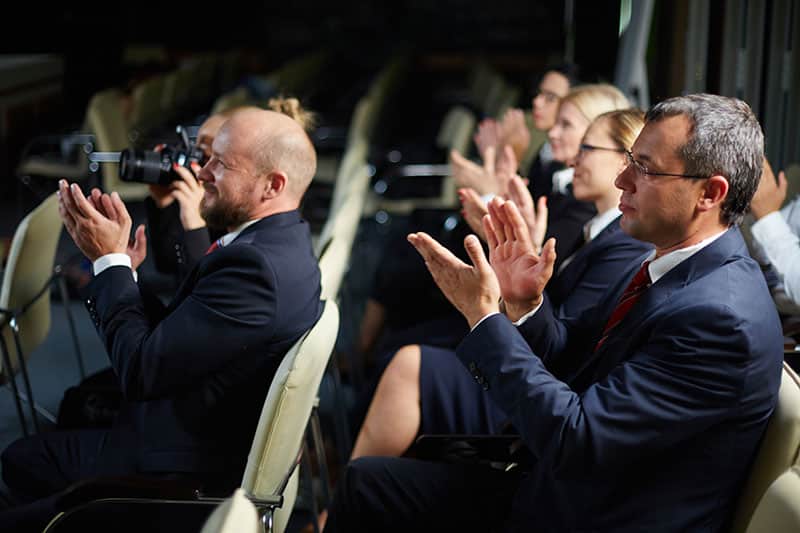What’s Keeping CEO’s up at Night?

There is no doubt that we are living and leading in uncertain times. Whilst the role of a CEO is an incredibly rewarding one, it also comes with its fair share of worries. But what are those concerns and what is it that’s keeping them, or you, up at night?
Research suggests that their concerns tend to fall into a number of broad categories: the ability to operate in a global market place; political uncertainty and legislation; being able to capitalise on emerging technologies in a timely manner; and talent related issues.
Global markets
Whilst the challenges of operating successfully in global markets are numerous, they are ultimately a function of leadership. The challenge may be currency and economic volatility, extended supply chains, local competition or maintaining the culture when people are operating a long way from the home-base.
Entering a new region and creating a strong satellite business requires strong leadership, from the headquarters team and those operating in the overseas territory. As lines of communication become stretched, it becomes increasingly difficult for local leaders to stay focused on the true priorities and to ensure that the organisational culture is not lost.
The challenge is one of becoming an effective global company as opposed to a company that operates globally. This is about ensuring that local employees can truly connect with the organisation, and that the policies and processes reflect the world within which you operate, and not just that of your home-base.
Political uncertainty and legislation
Without doubt we are operating in uncertain times. The political landscape is changing at home and abroad which is impacting upon international trade and supply chains. Right now, the rate of technological change is the fastest it has ever been, and it will continue to increase. For fast-moving organisations, this presents a great opportunity followed by challenges several years down the line when policy and legislation eventually have to change to deal with the human, ethical and moral implications of the new technology.
Once again, this is a leadership challenge above all else.
Leaders must ensure that they remain externally and forward-focused if they are to lead their organisations through these challenging times successfully. We cannot allow ourselves to entrench, following the nationalistic and individualistic trend that is emerging in many parts of the globe.
People are looking to leaders for direction and inspiration more now than ever. Those that we lead are paying close attention to what we are doing and what we are spending our time on.
Capitalising on emerging technology
There isn’t a single business or sector that is safe from disruption. I’ve no doubt that there were numerous hoteliers and taxi drivers who said things like:
“Technology won’t affect us, people will always need a hotel to stay in or need to get from A to B in a taxi.”
And then along came Air B&B and Uber.
Capitalising on emerging technology isn’t as arbitrary as some would have us believe. Nor is it as extreme as ‘disrupt, or be disrupted’. Continued organisational success isn’t based purely on being the first to utilise emerging technology in a revolutionary way. It can equally be about employing it to deliver ever-increasing value to our customers whilst making our operations as effective as possible.
But in order to do this, we have to ensure that we are externally focused. We have to be scanning the horizon; we have to stay current and connected. We have to ensure that we have the talent within our organisations to exploit the new technologies and associated opportunities.
The challenge, once again, is a leadership challenge.
Talent
Attracting, developing and retaining talent has been on CEOs’ ‘worry list’ for decades. Yet it’s often the one that receives the least focused attention from the executive team.
During periods of high-growth and organisational change, companies need to hire large numbers of people. The most pressing challenge may be one of hiring the right number of skilled people to fill the new jobs you’re creating.
But this very quickly presents a secondary challenge; one of leadership and management.
There are a number of key questions that we must ask, and find the answer to:
- Has your organisation done enough to develop the next group of leaders and managers?
- Are those leaders and managers as passionate and committed to the organisation as the senior leadership team?
- How well do they understand the organisation’s vision and strategic priorities?
- And finally, can they be relied upon to uphold and develop the organisational culture as your lines of communication and control become drastically extended?
Leadership
Whilst these may be some of the most common things keeping CEOs up at night, solving these issues isn’t their sole responsibility. It’s the responsibility of the entire senior team.
In early 2003 I found myself in Northern Kuwait, just a few kilometres south of the Iraq border, receiving a set of orders. My mission was to cross the breach around 24 hours behind the US Marines and provide security to the only port in Iraq. A key strategic objective for the coalition forces.
At the time I was a 22-year old Troop Commander in the British Army, leading 30 soldiers with anywhere between one and 20 years of experience. In contrast, I’d spent 11 months at Sandhurst learning the basics of my craft, followed by three months on my Platoon Commanders’ Battle Course.
It was a daunting task. Nothing that I had learned or practised on the bleak, windswept training areas in the UK had prepared me specifically for this mission.
In that moment I recalled myself as a 15 year old, sitting opposite the recruiting Major in my school Careers Office. I can remember his words as if it were yesterday.
“Ben, always remember that as a leader you do not need to come up with all of the answers, all of the time.”
I’ve worked with many leaders who have a belief that they must have all of the answers. They believe that asking their team for help is a sign weakness. We have been sold a lie that successful leadership is about being all-knowing and all-conquering. The success of our team, business or department being a result of our ideas, and our ideas alone.
I believe that to accept this view of leadership is to fundamentally misunderstand what it means to be a leader.
When we ask our team for help or even admit that we do not know the answer it does not weaken our position. Rather it allows us to demonstrate our true strength and inner confidence. The very act of asking our team what they think builds trust and shows that we value their expertise. It shows that we are human.
When we let go of the need to appear invulnerable, and let go of our ego, that is when we can move from good to great, and beyond, as leaders.
And when we focus on ensuring that the senior leadership team is operating as effectively as it possibly can, we can successfully overcome all of the challenges that keep us up at night.
Have you read?
# Rich List Index, 2018.
# Best CEOs In The World, 2018.
# World’s Most Powerful People, 2018.
# World’s Most Powerful Women For 2018.
Add CEOWORLD magazine to your Google News feed.
Follow CEOWORLD magazine headlines on: Google News, LinkedIn, Twitter, and Facebook.
This report/news/ranking/statistics has been prepared only for general guidance on matters of interest and does not constitute professional advice. You should not act upon the information contained in this publication without obtaining specific professional advice. No representation or warranty (express or implied) is given as to the accuracy or completeness of the information contained in this publication, and, to the extent permitted by law, CEOWORLD magazine does not accept or assume any liability, responsibility or duty of care for any consequences of you or anyone else acting, or refraining to act, in reliance on the information contained in this publication or for any decision based on it.
Copyright 2024 The CEOWORLD magazine. All rights reserved. This material (and any extract from it) must not be copied, redistributed or placed on any website, without CEOWORLD magazine' prior written consent. For media queries, please contact: info@ceoworld.biz
SUBSCRIBE NEWSLETTER








